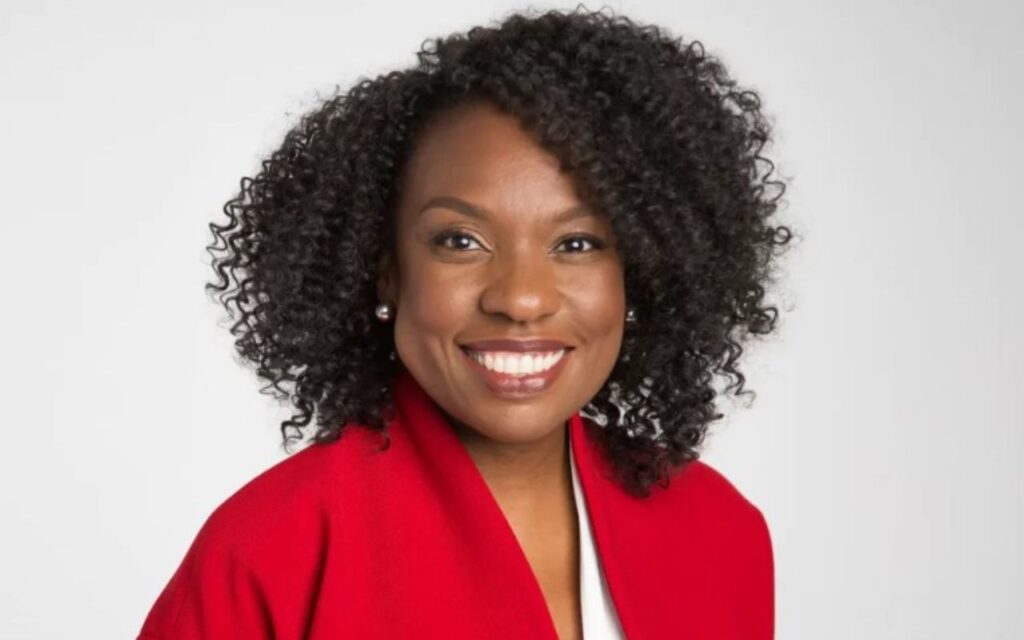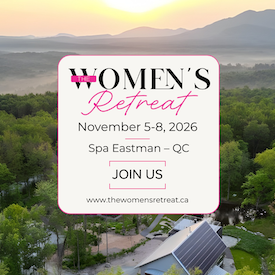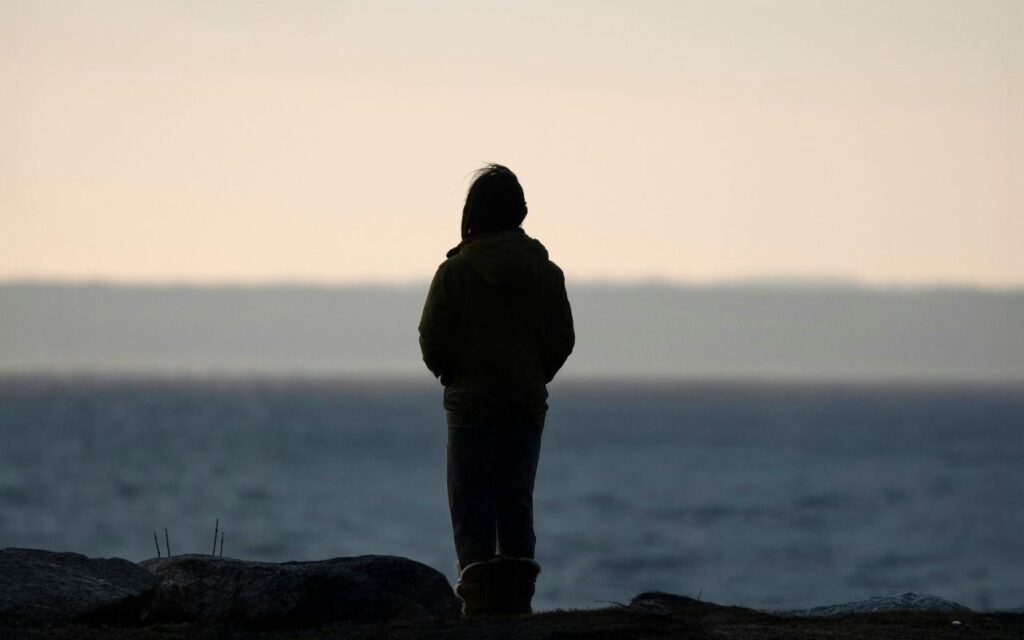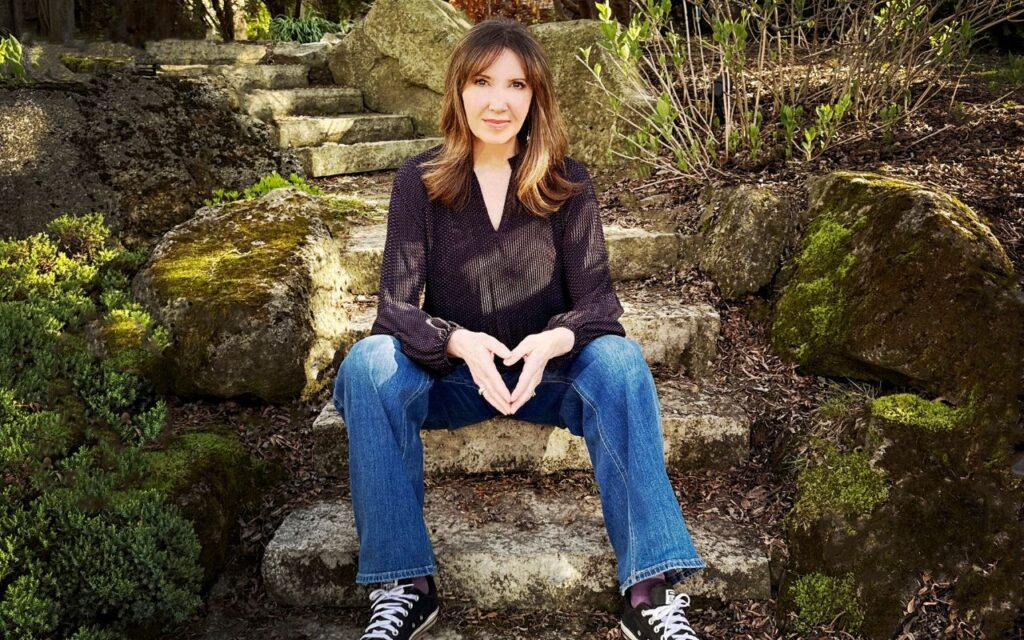
Catherine Clark: Congrats on the new role as president and CEO of the Canadian Women’s Foundation. You are taking on this job at a really interesting point in history. It feels like the rights of women have stalled in some countries and that they’re being rolled back in others. I’m wondering what emotions you’re feeling about taking on this new mission?
Mitzie Hunter: I recognize the moment that we’re in. I am still in shock over Roe v. Wade and that it has been overturned by the Supreme Court in the United States. Never thought I would have ever seen that. I grew up in an era where I felt that women had already done certain things and that we wouldn’t be going backwards.
And so, being part of the Canadian Women’s Foundation, I’m still in awe. As I encounter them out in the world, I’m thrilled to tell people that I get to lead this amazing organization. It’s a small organization, relatively speaking, but boy, does it punch above its weight and brings huge, effective value to our work on behalf of women, girls, and gender-diverse people across Canada.
Jennifer Stewart: What personal vision or mission are you bringing to the Canadian Women’s Foundation? What is one thing you want to accomplish as its leader?
Mitzie Hunter: More impact. Any of my former team members will be smiling when they hear me say that because I’m huge on impact — driving it forward and getting big, complicated things done. And ending gender-based violence is one of those big, complicated things. I work best in that type of environment, and I’m really, really excited to be part of it.
I know that I am following Senator Paulette Senior, who beautifully championed this cause when she was CEO. I’m very honoured to lead this organization, as you rightly said, at this very important time in our history.
Catherine Clark: So I want to take you back a little bit. According to your brother, your leadership style developed quite early. What was it like growing up being one girl with three brothers?
Mitzie Hunter: Yes, I have two older brothers and one younger one. Growing up in our household was the best training ground for me for leadership because even around the dinner table, you had to assert yourself. So I’m very used to doing that and speaking up to be heard, ensuring I’m understood. I also learned not to be afraid of being the only one in a room and having a different point of view.
Jennifer Stewart: How did you get past people caring if you had a different point of view and just being authentic to your own opinion and putting it out in the world?
Mitzie Hunter: If you were to talk to my brothers, they would tell you Mitzie is full of opinions. It is something that I am very used to. I come from an immigrant family. We immigrated from Jamaica when I was very young, and my parents always said, “You’re here in this country to have a better life.” They sacrificed so my brothers and I could have a better life.
I understand that sometimes it’s not heard the first time. You have to come back again, make your point, stick to it, and move forward with an issue you care about. I’ve tackled really, really tough issues like ending gun violence and making it a public health issue here in Ontario as a private member of the legislature.
And I did that because I really felt that people who were not only victims of gun violence but everybody who surrounded them were affected by that trauma, and that trauma would just keep going from generation to generation unless we did something to help those individuals and to end that cycle of violence.
I see that as something I can bring to this role in terms of how we tackle really big, challenging, and complicated issues by bringing others into the conversation and breaking it down so that people understand that it’s their issue, too. It’s not just happening over there.
Catherine Clark: You must have encountered situations where people either attempted to silence or sideline you. How did you overcome those kinds of obstacles?
Mitzie Hunter: Absolutely. I started my corporate career in tech, and I worked in technology, and I encountered it there as well. Being a woman of intersection, as a Black woman, sometimes people don’t expect you to be the expert in the room. As a former Minister of Education, I would walk into the room, and they would talk to my Chief of Staff instead of to me because they didn’t recognize that the minister could look like me. And so it’s something that I’ve encountered along the way. But, what I try to do is try to find common ground, especially when I walk into a room where there’s a deep divide and people are not on the same page. I try to find what brings us together. What are the things that we can actually agree on?
I believe that everyone can agree that women, girls, and gender-diverse people deserve to have safety. They deserve to be safe wherever they are: in their homes, in the community, in northern and rural areas, and in the big cities … women, girls, and gender-diverse people deserve safety.
Jennifer Stewart: As you mentioned, you’ve served as a provincial cabinet minister. You ran for mayor of Toronto. Can you tell us the good, the bad, and the ugly about what it’s like running for office as a woman?
Mitzie Hunter: Let me focus on the leadership side because running for mayor is about leadership, and this is an area where more women should take up the mantle of leadership.
We need everyone from all backgrounds and all genders to see themselves with that opportunity to be able to lead and to make a contribution.
There are some policies in there that could really impact the lives of the citizens of Toronto, and I really wanted to get my message out. The way that I felt I could do that was to show up at debates, to show up in forums where people were interested in learning about the issues and in finding out more.
Jennifer Stewart: What’s the best piece of advice you’ve ever been given?
Mitzie Hunter: My support network is really important to me. I grew up with very strong female leaders, starting with my grandmother Eva Hunter, the matriarch of our family, and my mom. If I ever got into a situation where I felt that I would fail or that I had failed or didn’t get whatever I was going after, I would call my mom. I would talk to her, and she always had a way of turning it around. And she said, Mitzie, that opportunity wasn’t for you, but the next one will be.
So, she always pointed me forward, and that was something that helped me through moments of disappointment and challenges. Having someone who was always on Team Mitzie who would believe in my abilities to move forward and to find my next.
Catherine Clark: This may seem like an odd question, but has there been a worst piece of advice that you received?
Mitzie Hunter: Oh, all the time. You have to believe in yourself and your vision for your life, future, and the difference you want to make in the world. And that’s something you must know for yourself, because often, other people don’t see it. They don’t see the vision.
They don’t know why I decided to run to be mayor or why I decided to run to be the leader of the Ontario Liberal Party because no Black woman had done that before. They hadn’t seen it.
Because often, along the way, when I stepped out and attempted to do something for the first time, people would say, “You can’t do that. No one has ever done that.” I actually heard when I was running to be the leader of the Ontario Liberal Party that I, a Black woman, couldn’t do that role. And I said, “Oh, really, just watch me.” That’s one of the reasons why I feel it is important to step out and lead; you show others.
Jennifer Stewart: You’ve done a lot of exceptional things in your career, but have you ever faced burnout?
Mitzie Hunter: I watch for it, and I’m sure that there were times, especially after really tough elections, when you want to sleep for a week. But real burnout is where you can’t will yourself back, where you really lose all the ability to get rid of exhaustion or to get that willingness to get back up. So I watch for that very carefully in my life.
Self-care, health and wellness, nature walks, riding my bike … I get a real sense of freedom from doing things like that, which helps me rejuvenate. So my mantra for burnout is, don’t go that far in terms of the work that you’re doing and your commitment, because if you get to the stage of burnout, you’re not useful to yourself, your family, or really to the work that you’re trying to accomplish. It’s better to give yourself space and time to rejuvenate and then go back to work.







